patron q's: court cards
this post was originally shared with patreon subscribers in august 2022.
hello, friends! today we're going to tackle a question that so many readers of all experience levels have - how do we deal with those pesky court cards? what do they mean when they show up in readings?
before we dig in, a reminder that i've been doing a series over on instagram about this very topic. you can follow the hashtag #orderinthecourt to explore the entire series, and i'll be sharing the next post on the knight of swords on sunday.
//
to start: court cards are the 16 "face cards" that are often represented as figures in the minor arcana, four associated with each of the four suits. these cards are typically organized by experience level: pages, knights, queens, and kings. while these aren't always human forms, we tend to think of these cards as the embodiment of the elements, showing the ways that we can utilize and live within each of these four suits in various ways.
some people like to view the court cards as distinct from the minor arcana, a third segment of the tarot separate from the major archetypes and the minor numbered cards that we call pips. i prefer to see them as an extensions of the minors, offering another way that we can work with and understand each of the four elements.
pages are the students, the youths, the beginners who are starting a new adventure with fresh eyes and little concern about how things are typically done. knights are the apprentices, the adolescents, with more knowledge and experience than their younger counterparts but who are still learning to utilize the full power of their element. queens and kings are both masters of their suit, wielding their magic with grace, purpose, and intentionality, but working towards different ends. i tend to see queens as more internal, intimate, personal, working to protect and empower individuals around them, while i interpret kings as being more external, putting the collective first, considering what needs to be fortified and what could be redesigned, reconsidered, rebuilt.
traditionally, court cards are often interpreted as being someone in the querent's life - a literal person that they may already have a relationship with, or someone new that will be coming into their life. other readers see court cards as representative of aspects of the querent's self, a version of them that they may need to step more fully into or learn to explore in a new way. still others read court cards as timings, or insights into where we are in mastery of an element.
none of these interpretations are more right or wrong than others - but the many ways to view and understand these cards can lead to them feeling very confusing for beginning tarot readers, who may not know what to do when cards like this pop up in a reading. and even if you've been reading for years, court cards can still present unique challenges, particularly if they come up in a spread position that's unexpected.
however, i think that the openness of these cards lets them bring a certain delicious vagueness to readings that can be fun to explore. tarot reading is not a science but an art, a method of discovery, a series of questions that may not always have perfectly clear and easy answers. more than any other card category in the deck, court cards remind us that we are human, that the world is complex, that our struggles don't always follow a straight line.
i find that the best way to gain a better gradual understanding of these cards is to look at them in groupings, and to consider the ways that they are similar and different. while each category of card may have similarities in terms of energy and intention, these can look very different when considering how these levels of experience intersect with each of the four suits, or elements. page energy in general is curious, eager, discovery-oriented, open-minded, experimental, excited - but the way that this manifests with fire and wands is very different than how it might feel with earth and pentacles. knight energy is seeking, adventurous, devoted, but can also be scattered, obsessive, arrogant - characteristics that may bring out very different qualities in a quest of the intellect (air/swords) over a quest of the heart (water/cups). queen energy is loyal, nurturing, artistic, deliberate, observant, and intuitive, which can feel sexy and exciting in the suit of fire but may read as more quiet and empathetic in the suit of water. king energy is authoritative, expansive, committed, protective, masterful, organized, and logical, which may read as cold and unfeeling with the suit of swords but becomes generous and resourceful with the suit of pentacles.
from a numerological perspective, there are several ways to look at the court cards. i see these cards as continuations of their suits, making pages card 11, knights card 12, queens card 13, and kings card 14. but we can look at these as individual digits, or can follow pythagorean rules and combine digits. (if you're interested in digging into this in more detail, you'll love my tarot & numerology course, which i'll be hosting again soon!) without getting too into the weeds on this, i prefer combining digits, which gives the pages a final number of 2 (think about the minor arcana 2s and the priestess), the knights a final number of 3 (minor 3s and the empress), the queens a final number of 4 (minor 4s and the emperor), and kings a final number of 5 (minor 5s and the hierophant). through this lens, pages become observant, choice-oriented, reflective, and deeply personal, while knights are allowed raw and open expression without the demands of perfectionism. queens become protective, deliberate, balancing care for creative expression with necessary stability, while kings are challengers and changemakers, eager to preserve the essential parts of the past while challenging boundaries that may be holding the collective back from important progress.
a reminder that these are just jumping-off points, just my personal insights rather than definitive interpretations - we all have different relationships with these cards, and with their respective suits, so this is in no way meant to be exhaustive. the more that you work with individual cards as well as specific groupings, the more these cards will reveal themselves to you, and the more you'll be able to develop specific, personal meanings for each of them.
with that in mind: what does it mean for pages to be curious, awe-stricken, eager to explore? how do knights want to prove themselves, and where might that bring about both new adventures and new challenges? what kind of protective energy do you see within queens, and how might that feel different from the more delicate, nurturing ways that they are so often depicted? how might kings both uphold tradition and challenge norms, making space for new structures and ideas, encouraging growth in different ways?
//
i would love to hear from you in the comments - your questions about these tricky cards, as well as how you understand pages, knights, queens, and kings. what are your favorite versions of these cards? do you identify strongly with any cards in particular? (i have special relationships with the king of cups, the queen of wands, and the queen of swords.) what helps you work with these cards in readings?
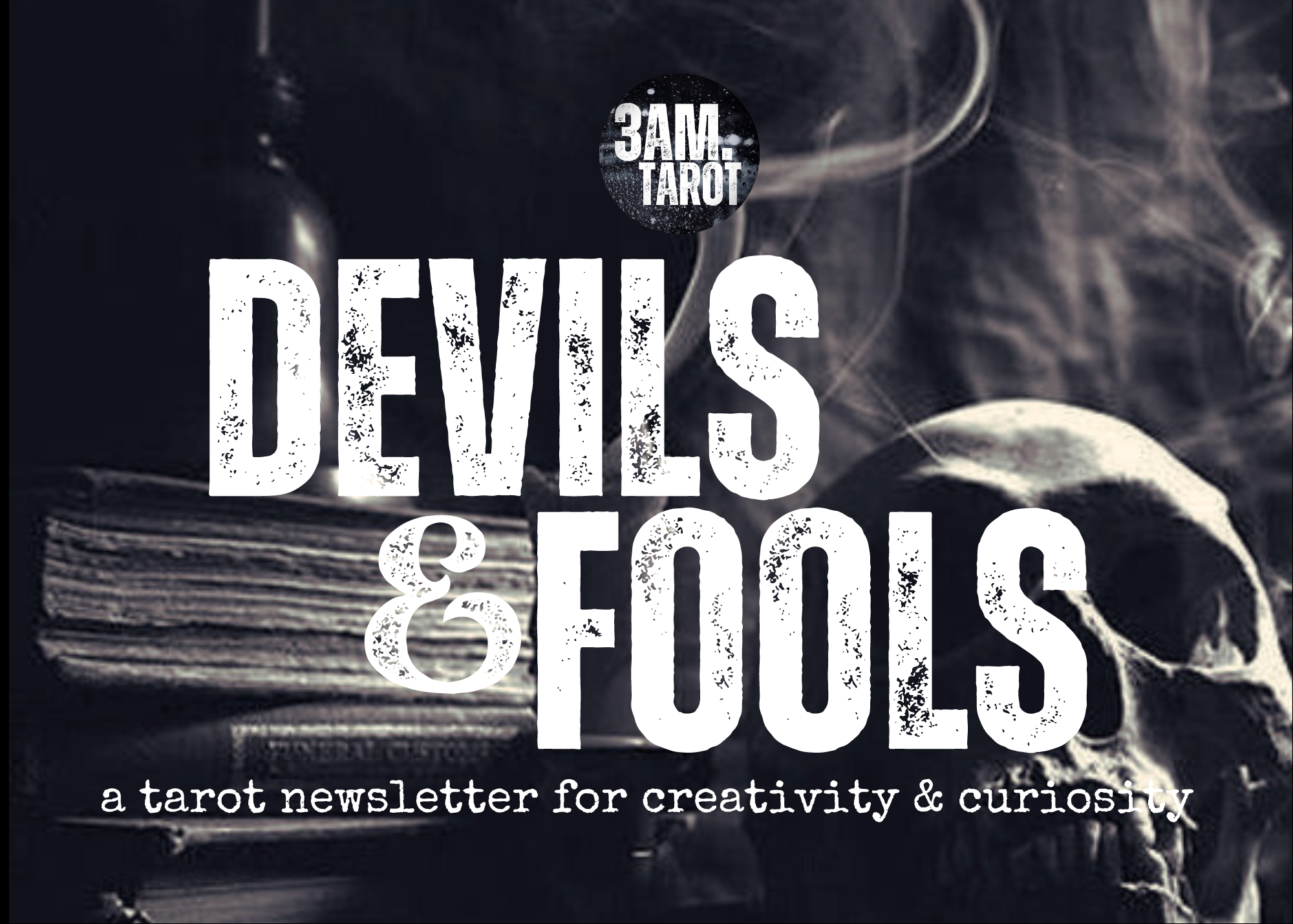
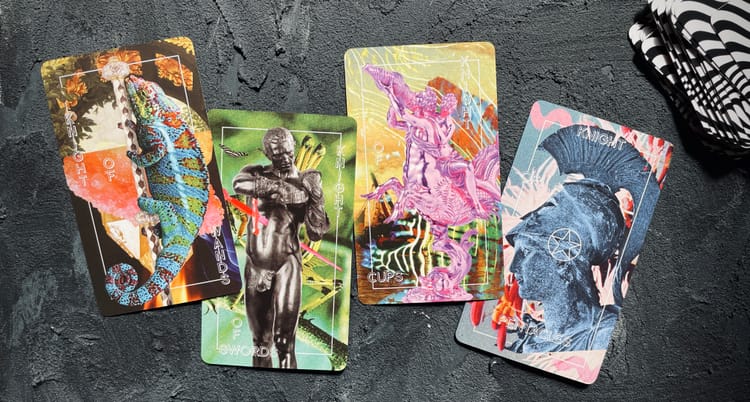

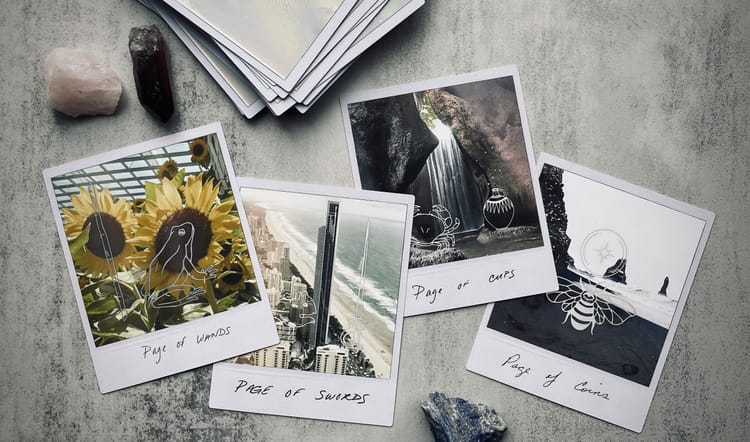
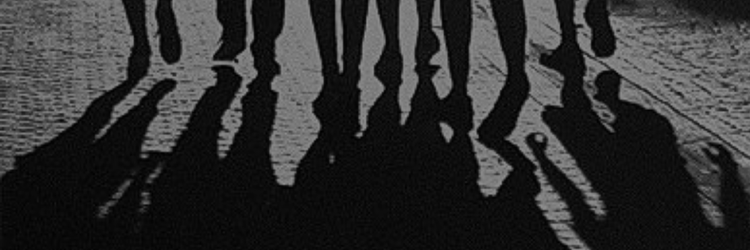
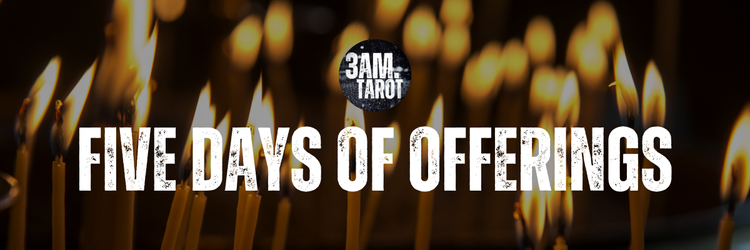
Member discussion